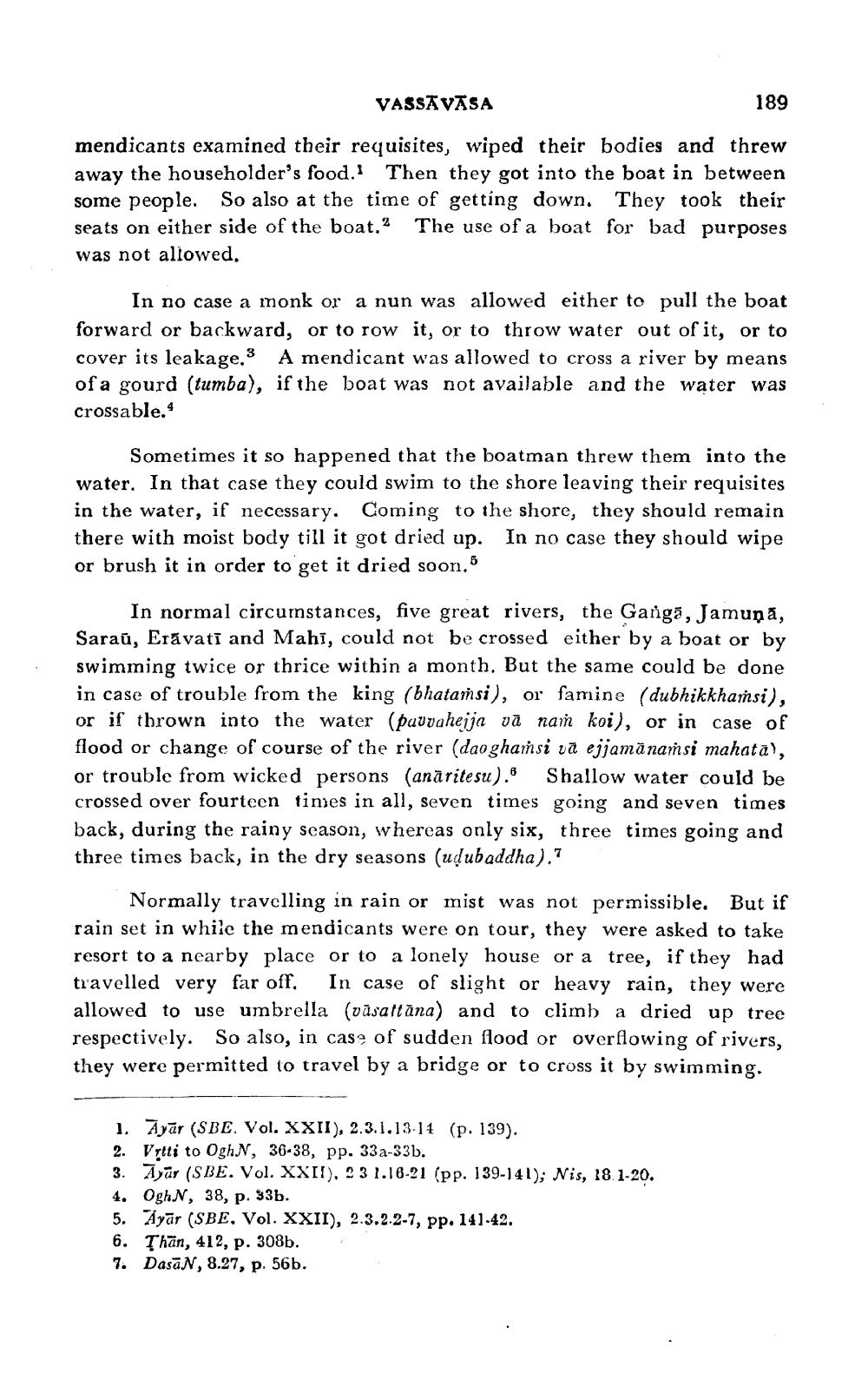________________
VASSAVASA
189
mendicants examined their requisites, wiped their bodies and threw away the householder's food.' Then they got into the boat in between some people. So also at the time of getting down. They took their seats on either side of the boat. The use of a boat for bad purposes was not allowed.
In no case a monk or a nun was allowed either to pull the boat forward or backward, or to row it, or to throw water out of it, or to cover its leakage,3 A mendicant was allowed to cross a river by means of a gourd (tumba), if the boat was not available and the water was crossable.
Sometimes it so happened that the boatman threw them into the water. In that case they could swim to the shore leaving their requisites in the water, if necessary. Coming to the shore, they should remain there with moist body till it got dried up. In no case they should wipe or brush it in order to get it dried soon.
In normal circumstances, five great rivers, the Ganga, Jamuna, Saraū, Erāvati and Mahī, could not be crossed either by a boat or by swimming twice or thrice within a month. But the same could be done in case of trouble from the king (bhatamsi), or famine (dubhikkhansi), or if thrown into the water (pavvaheijn và nan koi), or in case of flood or change of course of the river (daoghaṁsi va ejjamānamsi mahata), or trouble from wicked persons (anāritesu). Shallow water could be crossed over fourteen times in all, seven times going and seven times back, during the rainy season, whereas only six, three times going and three times back, in the dry seasons (udubaddha).7
Normally travelling in rain or mist was not permissible. But if rain set in while the mendicants were on tour, they were asked to take resort to a nearby place or to a lonely house or a tree, if they had travelled very far off. In case of slight or heavy rain, they were allowed to use umbrella (vāsattāna) and to climb a dried up tree respectively. So also, in case of sudden flood or overflowing of rivers, they were permitted to travel by a bridge or to cross it by swimming.
1. Ayar (SBE. Vol. XXII), 2.3.1.13-14 (p. 139). 2. Vytti to OghN, 36-38, pp. 33a-33b. 3. Ayar (SBE. Vol. XXII), 23 1.16-21 (pp. 139-141); Nis, 18.1-20.
OghN, 38, p. 33b. 5. Ayar (SBE, Vol. XXII), 2.3.2.2-7, pp. 141-42. 6. Thân, 412, p. 308b. 7. Dasās, 8.27, p. 56b.




